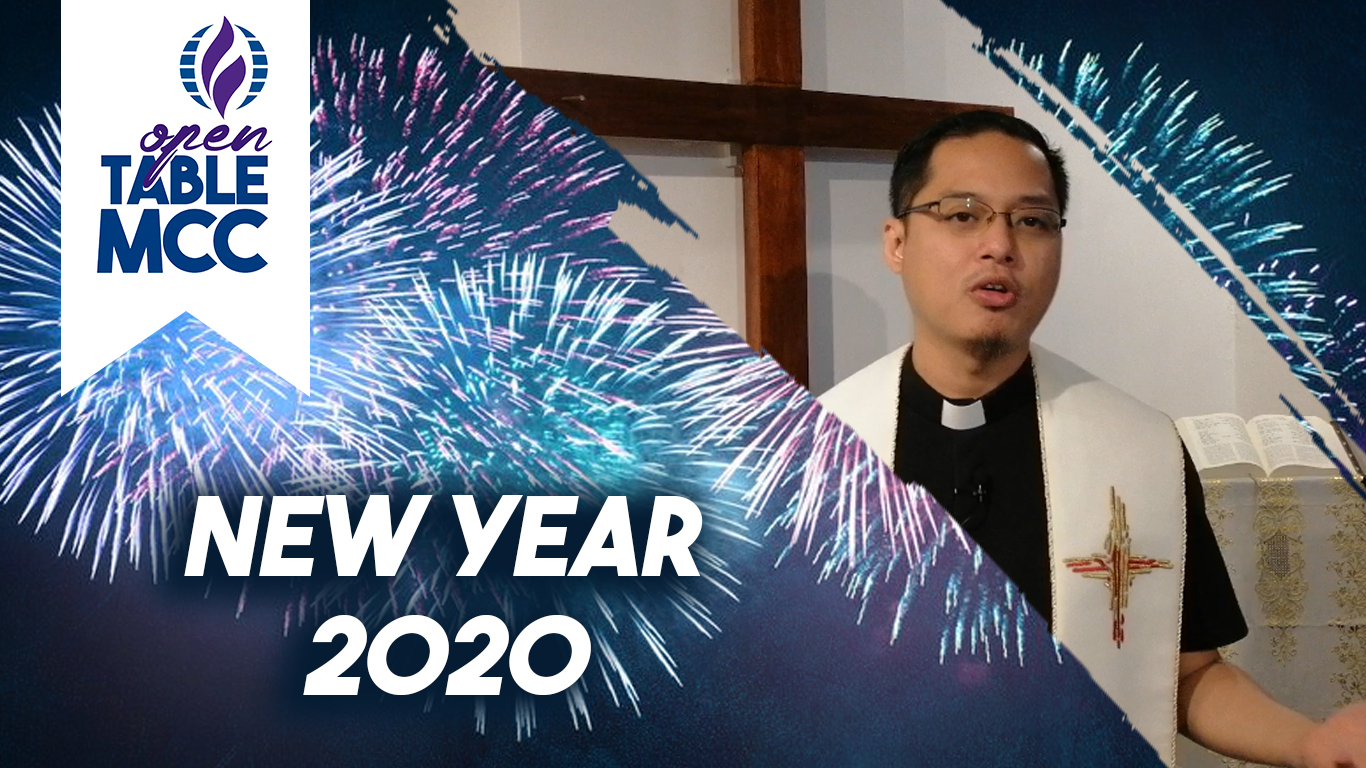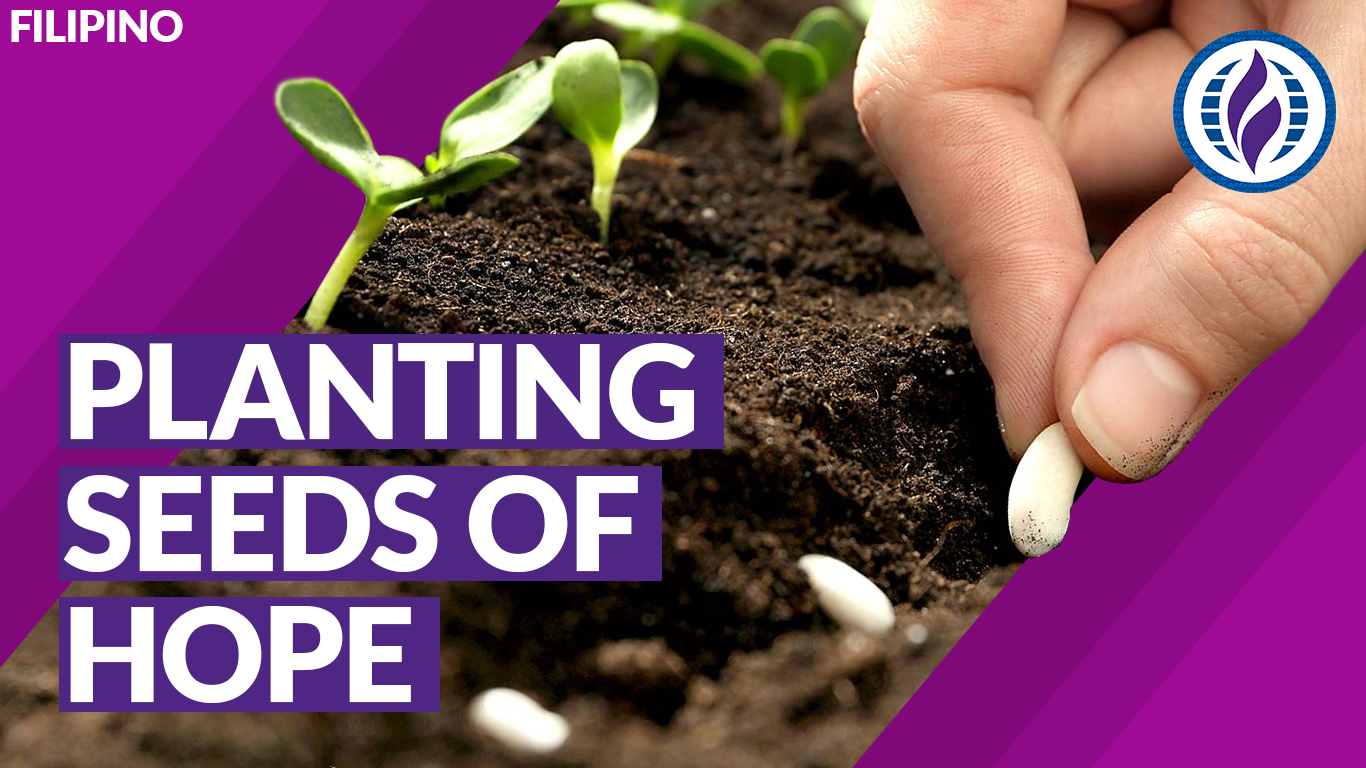My brothers and sisters, whenever you face trials of any kind, consider it nothing but joy, because you know that the testing of your faith produces endurance; and let endurance have its full effect, so that you may be mature and complete, lacking in nothing.
If any of you is lacking in wisdom, ask God, who gives to all generously and ungrudgingly, and it will be given you.
Scripture Reading
James 1:2-5 (NRSV)
Nung sinend sa akin ni Pastor ‘tong reading natin for today, sabi ko, “Shems, ang hirap.” Kasi sa surface level parang ineecho ni James yung mga cliché slogans like “Everything happens for a reason”, “What doesn’t kill you makes you stronger”, “Just be positive,” “Everything will be okay”, and “Look on the bright side.” Pero alam kong hindi kayo pumunta ng Open Table MCC today para magaslight. And the last thing I want to do is to romanticize suffering at magpakalat ng toxic positivity on a Sunday afternoon. Iwan na natin sa pandemic era yang mga ganyan.
Pag stressed tayo, stressed talaga tayo. Pag malungkot tayo, malungkot talaga tayo. Pag nabibigatan tayo sa mga problema, yun ay dahil mabigat talaga sila.
Today, God wants to tell you that your feelings are valid. The emotions you’re experiencing are real. You don’t need to doubt them.
Yun nga lang, parang iba naman yung sinasabi ng reading natin. Ano ba kasi yang talak na yan ni James?
Bago ko idefend si James sa quotable passage niya, I also want to share na hindi tayo 100% sure na James talaga yung pangalan nung nagsulat ng Letter of James. Sa Christian tradition, pinaniniwalaan na si James na brother ni Jesus ang author ng letter while may mga scholars naman na nagsasabing kay James nga galing yung material na nasa text pero iba yung mismong nagsulat ng letter. But for this preaching, we’ll refer to the author as James for the sake of simplying the discussion.
Now, going back, ano ba talaga ang ibig sabihin ni James nung sinabi niya na 1. Consider trials as joy. 2. Testing your faith produces endurance. 3. Let endurance have its full effect so that you may be mature and complete.
In that passage, verses 2-4, he actually raised three interesting points that are far from the toxic positivity that we may get from it if we only read the text on a surface level.
Let’s start with Verse 2. In this verse, when he said consider trials as joy, he distinguished joy from happiness.
Madalas kasing nagiging interchangeable yang dalawa ‘di ba. Lalo na sa ating mga Pinoy na ‘pag may paessay writing, nagthethesaurus. Pero bawat salita, may nakakabit na unique na kahulugan. And when we forget that quality of language, pati yung reality natin pwedeng maapektuhan. Kaya if we always interchange joy and happiness, baka may namimissout tayong irecognize sa buhay natin. Kasi akala natin same lang sila. So ano nga ba itong joy na ito na pwedeng magexist even if we’re suffering?
Para maintindihan natin, let’s further differentiate joy from happiness.
In the 1828 version of Webster’s Dictionary, Joy is defined as the passion or emotion excited by the acquisition or expectation of good. In comparison with happiness, which is defined as sensations which spring from the enjoyment of good or we can also call as gratification, joy is not something you can get from a present pleasurable or fun event. It’s a manifestation of someone’s faith that there’s good to come. That’s why in Galatians 5:22-23, joy is said to be one of the fruits of the spirit. And if a person is guided by the Holy Spirit, these fruits will manifest anuman ang external circumstances. Now, it’s clear to us that they’re different.
In the Bible, there are characters who are described by the scriptures as joyful amidst suffering. In Acts 5:12-42, the apostles, despite being imprisoned and flogged for performing miracles and acts of kindness, are described as rejoicing. Ibig bang sabihin nun masaya silang hinagupit sila? Hindi. Hindi BDSM fans ang first Christians. The right word to use in Filipino is nagagalak or in English, joy. They felt joy and were able to rejoice because they knew that there’s good to come and they stayed true to their principles.
Sa panahon natin, masasabi nating ang hirap pala maging joyful. Parang walang ikagagalak masyado dahil naiipit tayo sa kabi-kabilang “trials”. Sa personal lives natin may mga sahod na kailangang pagkasyahin at mga conflict within the family and friend groups na kailangang ayusin. Sa bansa natin, nagbabardagulan ang mga pulitiko at parang walang silver lining lalo na noong nakita mo yung survey para sa 2028 elections. At higit sa lahat, ilang buwan na nating hinihiling na magkaroon ng ceasefire sa Gaza pero wala pa rin. Kaya paano natin magagawang magalak sa kabila ng lahat ng ito?
Sinasagot ng second main point ni James ang tanong na yan.
On Verse 3, he wanted to point out that trials are a significant factor in our spiritual growth. And as we try to find joy in each of our trials, we also get the chance to cultivate the other fruits of the holy spirit that are mentioned sa Galatians.
Let’s have a quick review. Ano nga ba ang mga fruit of the holy spirit? We have love, joy, peace, patience, kindness, generosity, faithfulness, gentleness, and self-control. Kung bibigyang pansin natin, itong trials na kinakaharap natin, are opportunities to let these fruits grow. Paano? Sometimes, we need to use love to resolve an issue. Minsan, baka patience naman ang kailangan natin. Baka kailangan din nating pairalin ang kindness, self-control, o ‘di naman kaya gentleness para masolusyunan ang isang problema. As we try to seek joy out of these challenging moments in our lives, we also let the other fruits of the spirit develop within us.
Kaya kung babalikan natin yung tanong, keri bang magawang magalak sa kabila ng lahat ng problema sa buhay? Yes. It’s possible. But only if we let the trials transform us. Yan ang pinakapunto ng Verse 3. The testing of our faith has the potential to help us understand ourselves better, be mature, and of course, bear the fruits of the holy spirit.
Minsan parang ang hirap imaginin. How’s that possible?
Lahat ba tayo rito nakaranas na ng breakup? Hindi madali, ‘di ba? Minsan parang ikamamatay mo na. But after you moved on, marerealize mo na pinush ka pala nung breakup to grow. Kaya nga nauso yung sinasabi nilang may mga taong ginamit ka for character development. Masakit man pero it’s true to some extent because breakups like all other devastating and negative events have the potential to propel us towards a growth na we might not have been able to achieve if comfortable at masaya lang tayo every day.
What’s also amazing here is that this transformation isn’t limited to the personal level; it extends beyond individual growth. The history of this church serves as evidence of how trials lead to a community’s metamorphosis. There was a period in MCC’s history when it was on the verge of collapse. Umabot nga sa point na muntik nang magsara ang MCCQC. Sa dami ng mga nakakalokang ganap noon, tinawag natin yung phase na yun na dark ages. But because the legacy members persevered, rejoiced despite the struggles, and believed that there’s good to come, nandito tayo ngayon sa Wilshire. Hindi tayo makakarating dito kung hindi ibinaon ng mga legacy members ang learnings mula sa mga problema at kung ano anong kachakahan sa past. It made the members wiser.
Yun nga lang, hindi natin maitatanggi na may mga problemang pagkatagal-tagal matapos. Kaya sa Verse 4, James raised his last main point, which is something that would comfort us. If we paraphase his message into something simpler, it’ll be “trust the process.” Sometimes, we just really have to wait and trust the process.
And in going through that process, mayroon tayong hindi dapat kalimutan. On Verse 5, it was emphasized that we need to ask God for wisdom and God who is generous will give it to us.
Pero how does God provide wisdom? After mo ba magpray, ang smart smart mo na? Alam mo na agad ang solusyon sa lahat ng problema mo? Syempre, hindi ganun. Hindi ka magiging si Jimmy Neutron na may Brain Blast moment or gaya ni Archimedes na may Eureka moment.
Most of the time, you need to dig. You need to actively search for wisdom. Sabi nga sa Proverbs 2:4, “look for wisdom like silver. Search for it like hidden treasure.” At dahil napakaraming source ng wisdom from God, I can only discuss two resources this afternoon.
First, scriptures. Before I elaborate this one, I have a question for all of us. Sino sa atin ang nabasa na ulit ang buong bible after umalis sa previous church? Or sino sa atin ang nagkachance nang ireinterpret ang mga bible stories na natutunan natin noong bata pa tayo?
I think kokonti pa lang sa atin. Probably, because we still have this fear na hindi natin kayang maintindihan ang Bible, fear that was instilled by our former religious leaders. Or baka naman iniisip natin, nandyan naman ang MCC, nandyan naman si Pastor, nakikinig naman ako nang mabuti ‘pag Sunday service. Keri na yun. Pero keri na nga ba talaga yun? O baka we can find time to read Bible passages at makita on our own yung sinasabi sa Proverbs na hidden treasure we’re looking for?
I think it’s time for us to deeply reflect and contemplate on that question kasi I believe that each of us here can reinterpret those bible passages we’ve learned in the past. Pastor Joseph provided us with fundamental tools for queer theology and jeepney hermeneutics and IQThS will continue to guide us in that journey. Ilapat natin sa context natin. Sa mga pang-araw-araw na struggles natin. What can we learn from the Israelites noong nasa wilderness sila? Anong matututunan natin sa mga propeta at propetisa ng Ancient Israel? What can we learn from the fall of King Solomon? If we need courage, what if we check out Queen Esther’s story or Daniel’s story or Jeremiah’s story? Can you still remember all of Jesus’ miracles? Ako hindi but what wisdom can we get from those stories? If we approach the bible in a new light, ang dami pa nating matututunan.
To end this preaching, I want you to look to your left and then to your right. Anong napansin niyo?
Ang cheesy nitong sasabihin ko but we have each other. This community is a source of wisdom. God reveals his wisdom through community. With our diverse backgrounds, beliefs, and perspectives, God already speaks to us in various languages and diverse truths. Wisdom is found in the multiplicity of trutht. Sometimes even in the contradictions of truths. We can learn from each other, and we can be there for each other as we overcome the challenges that life presents.
Kaya going back to the title of this preaching, let’s just keep on swimming. Kaya natin ‘to. At hindi lang kaya. With God’s wisdom and the support of this loving community, we can consider this life of ours nothing but joy – joy that is constant and that which passes through and overcomes struggles.
Podcast: Play in new window | Download
Subscribe: Apple Podcasts | Spotify | RSS



